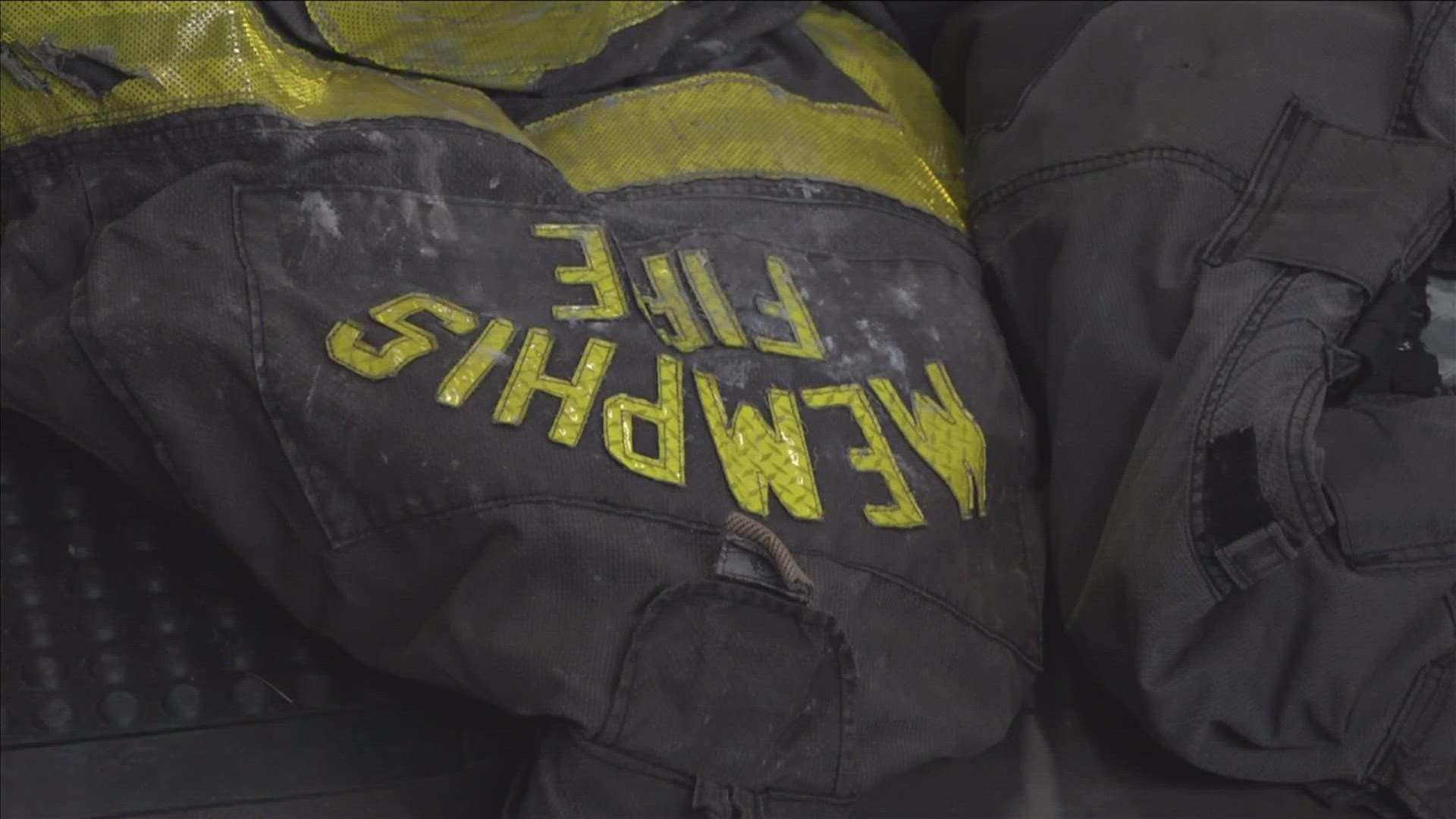MEMPHIS, Tenn. — January is firefighter cancer awareness month, but its importance is year-round.
Brittani Moncrease introduced us to a Memphis family raising awareness about firefighters diagnosed with cancer linked to improper gear cleaning.
There is a pride that comes over Kevin Woods whenever he mentions his dad, Martin.
“You always think he’s invincible...He’s barging into houses carrying an ax, saving people, putting out fires,” said Woods. “No matter how old you are, your dad is going to be your hero.”
Woods describes his dad as a selfless man having been a Memphis Firefighter for 33 years.
“Growing up as a son of a fireman, you kind of live in that fear of if that phone call comes later at night, it could be bad news,” said Woods. “You never would think that maybe 20 years down the road, it wouldn’t be that fire that would get to him.”
Instead, it was the remanence of battling fires.
“It was multiple myeloma,” said Woods.
Multiple myeloma is a rare cancer Woods’ dad now fights.
“Who would’ve thought this would be our biggest scare as a family of a fireman,” said Woods.
He said the cancer is a result of not properly cleaning his gear as often as he should.
“They didn’t know. My dad was probably cleaning his gear maybe two to three times a year,” said Woods.
Memphis Fire Department’s Logistics Chief, Keith James, said not cleaning your gear often was common years ago.
“The dirtier you looked, the more of a badge of honor that was. Now, we have to shift that to a focus of keeping that gear clean to prevent the cancers that firefighters see. Because of the mixture of carcinogens, we see rare cancers that the general population doesn’t see,” said James.
That culture shifted in 2016 when Memphis Fire partnered with the company, Gear Wash, to make sure uniforms are safe for firefighters.
“The carcinogens that are inside the smoke and fire when these firefighters are exposed to it, they get baked into this protective gear that they’re wearing. The only way to release that is through these machines called extractors,” said James.
The extractors are not the average washing machine. They’re used to extract carcinogens from the uniforms. The department has just added 10 more to be placed geographically throughout the city.
“The fire service, as everyone knows, is an inherently dangerous job, but that danger doesn’t end after the fire is out,” said James. “Since we’ve had this program in 2016, we see that more firefighters use this even outside of their regularly scheduled cleaning.”
It's a lesson and process fire stations are learning nationwide.
For Woods, unable to change the past that led to his father’s diagnosis, he struggles with knowing the cancer could have been prevented.
“It’s kind of frustrating in a way, but they didn’t know back then,” said Woods. “We feel grateful that he is doing as well as he is, but we’re able to say, ‘Firemen, you see what can happen with the simple thing of not cleaning gear.’”

